Webinar
Racehorse welfare across borders
Join a global panel of veterinary leaders and regulatory authorities as they share how objective gait analysis is advancing racehorse welfare in practice.
From elite international meets to national racing initiatives, hear how organisations are using Sleip’s technology to inform decisions on health and performance, enhance transparency, and raise the standard of care across the industry.
Open to all, and especially relevant to veterinarians in the racing industry, trainers and other racing professionals.
Thursday, July 3, 2025
14:00 - 15:30 CEST via Zoom
Time zone guide: 13:00 - 14:30 BST (UK) | 8.00-9.30 EDT (US) | 15.00-16.30AST (SA) | 20.00-21.30 HKT (HK) | 22.00-23.30 AEST (AU)

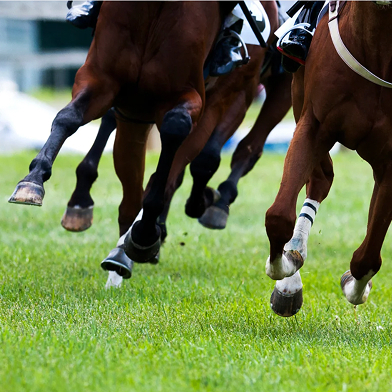
Event overview
In this 90-minute webinar, regulatory veterinarians and representatives from leading racing jurisdictions will share how Sleip is being used in their settings today—and explore the potential for greater consistency in documentation, welfare standards, and safety protocols across the global thoroughbred industry.
The session includes real-world case examples followed by a live panel discussion, moderated by Elin Hernlund (DVM, PhD), Chief Medical Officer at Sleip. The conversation will highlight practical experiences, trainer–vet collaboration, and the role of longitudinal data in supporting informed, evidence-based decisions.
Program
Welcome (5 min)
Opening remarks on the growing role of gait analysis in providing objective data to support dialogue and decision-making - Elin Hernlund
Cases from around the world (45 mins)
Hong Kong Jockey Club – Bronte Forbes
Bronte Forbes shares how HKJC has integrated Sleip into routine veterinary workflows and how objective data supports clinical decisions and horse care in one of the world’s most advanced racing jurisdictions
Saudi Cup 2025 – Toby Koenig
Toby Koenig discusses how Sleip was used in collaboration with trainers and treating veterinarians leading up to the 2025 Saudi Cup. All entrants were required to submit gait analysis videos in advance of travel and competition, supporting both welfare transparency and international collaboration.
British Horseracing Authority – Amy Hawthorn
Amy Hawthorne shares insights from the BHA's extensive trial of Sleip's gait analysis technology. Learn how videos collected from horses entered to run can help support early detection of potential issues, inform welfare policy, and strengthen collaboration between regulatory veterinarians and trainers.
Panel discussion and Q&A: Toward global standards? (40–45 min)
Panellists:
- Grace Forbes, Racing Victoria (Australia)
- David Kleins, New York Racing Association (US)
- Dr. Sarah Hinchliffe, New York Racing Association (US)
- Bronte Forbes, Hong Kong Jockey Club (HK)
- Amy Hawthorn, British Horseracing Authority (UK)
- Toby König, Jockey Club of Saudi Arabia (SA)
Speakers & panellists
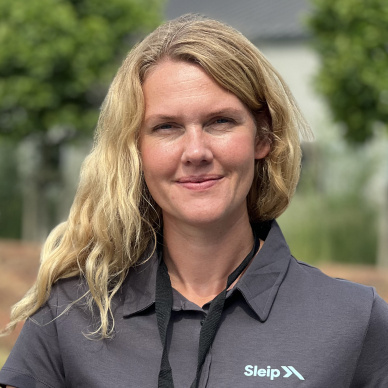
Dr. Elin Hernlund, Associate Professor at SLU, co-founder and CMO at Sleip
Since graduating as a vet in 2008, Elin has worked in clinical practice at the teaching hospital and with research. She has published over 40 research articles and written chapters in several scientific and popular science books about lameness assessment technology, biomechanics of body conformation, and sport surfaces for equestrian sports. In 2016, she published her PhD thesis in equine biomechanics. Since then, she has focused her research on AI methodology in animal motion analysis. Elin's life goal is to contribute to the development of scientifically validated tools that will help horses live longer and healthier lives.
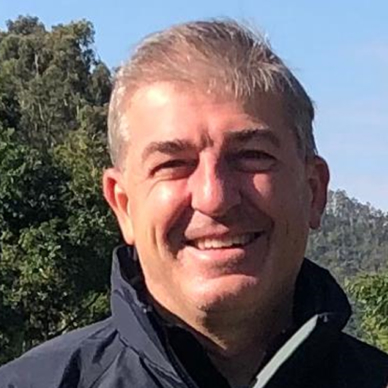
Dr. Bronte Forbes, Head of Veterinary Regulation at the Hong Kong Jockey Club
Since graduating from Murdoch University in Perth, Western Australia 30 years ago, Bronte has worked in Equine clinical practice in Australia, Ireland, Singapore and Hong Kong. For the past 4 years, Bronte has transitioned into a veterinary regulation role and is currently leading the Department of Veterinary Regulation, Welfare and Biosecurity policy at the Hong Kong Jockey Club. Bronte has recently been awarded a Professional Doctorate from the RVC in the UK, focusing on objective assessment of horses for fitness to compete.

Dr. Toby Koenig, Director of Veterinary Services, Jockey Club of Saudi Arabia
Toby is the Director of Veterinary Services at the Jockey Club of Saudi Arabia, where he leads a team focused on advancing regulatory veterinary services, equine welfare, and racing integrity. Before moving into regulatory roles, Toby gained a wealth of experience across the thoroughbred industry in both clinical and racing environments. He has since served as Chief Veterinary Officer at Racing New South Wales and Racing South Australia. At JCSA, his team oversees pre- and post-race assessments, medication control, injury surveillance, and welfare policy, with a strong emphasis on ensuring horse suitability to race and that the industry upholds the highest standards of safety, integrity, and public confidence.
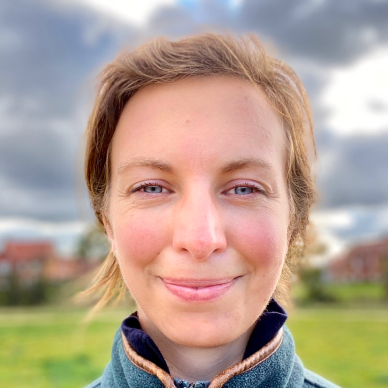
Dr. Amy Hawthorn, Senior Veterinary Officer, British Horseracing Authority
Following graduation from the RVC in 2010, Amy completed an 18 month hospital internship at Donnington Grove Equine Hospital near Lambourn, UK. This sparked a particular interest in lameness investigation and poor performance, which was her main focus as an ambulatory vet until she joined the British Horseracing Authority in 2019. Amy is now a Senior Veterinary Officer and combines raceday regulatory work with projects centred around enhancing race safety and welfare.
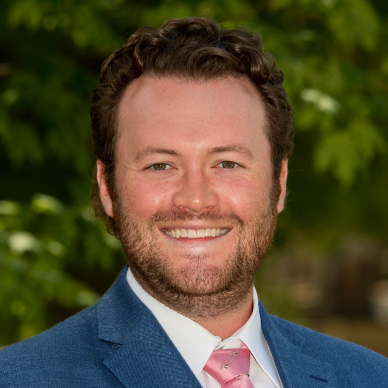
Davis Klein, Equine Biometric Specialist, New York Racing Association
Davis J. Klein currently serves as an Equine Biometric Specialist for The New York Racing Association (NYRA), where he plays a key role in advancing the health, safety, and performance of the sport’s equine athletes. Davis holds a Bachelor’s degree in Business Management from the University of Denver and a graduate certificate from the University of Louisville’s Equine Industry Program. He also spent a season working at Hermitage Farm, a historic Thoroughbred nursery in Kentucky known for its excellence in breeding, raising, and developing top-class racehorses. His academic background, combined with years of practical industry experience, has equipped him with a unique blend of business acumen and technical expertise in equine sports management.
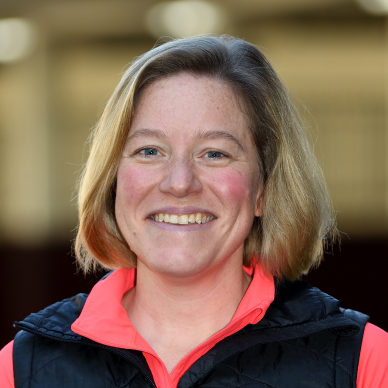
Dr. Sarah Hinchliffe, Veterinary Department Director at The New York Racing Association
Dr. Sarah Hinchliffe is responsible for overseeing the veterinary safety and welfare of all the horses at each of the three NYRA racetracks, as well as overseeing the day-to-day running of the veterinary department. A graduate of the University of Minnesota College of Veterinary Medicine, Dr. Hinchliffe joined NYRA in 2012, moved into the role of Senior Examining Veterinarian in 2018 and into her current role in January 2023. Dr. Hinchliffe was born and raised in upstate NY. She grew up riding and owning OTTBs and currently owns one OTTB.
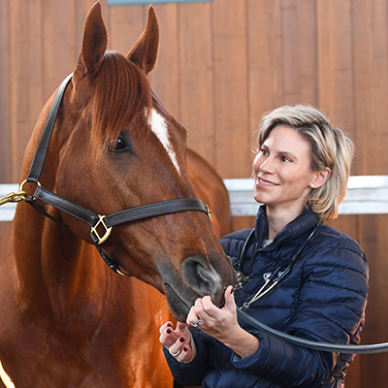
Dr. Grace Forbes, General Manager of Veterinary Services, Racing Victoria
Grace is the General Manager of Veterinary Services at Racing Victoria. With over 15 years of experience in racetrack practice, referral medicine, and veterinary regulation, Grace is dedicated to protecting the welfare of racehorses and the integrity of the industry. A graduate of the University of Melbourne, Grace completed a residency in equine internal medicine and conducted research focused on equine limb injuries, performance, and welfare. She has authored more than 20 peer-reviewed papers and holds positions on several national and international committees, including the IFHA Horse Welfare Committee and the International Movement of Horses Committee. She also serves as Secretary of the International Group of Specialized Racing Veterinarians.
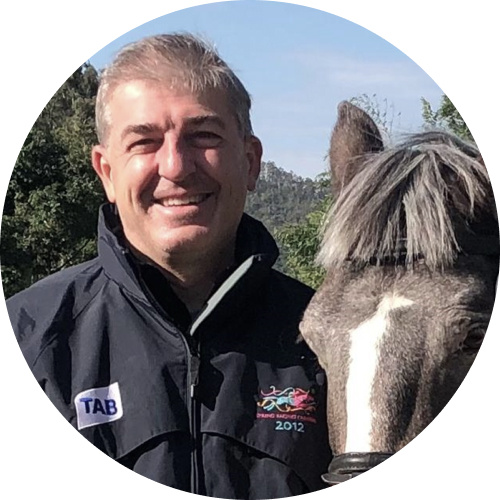
"It's good to see a push for a global standard. Rather than every jurisdiction having an approach, efforts are being made to establish a common way of doing things."
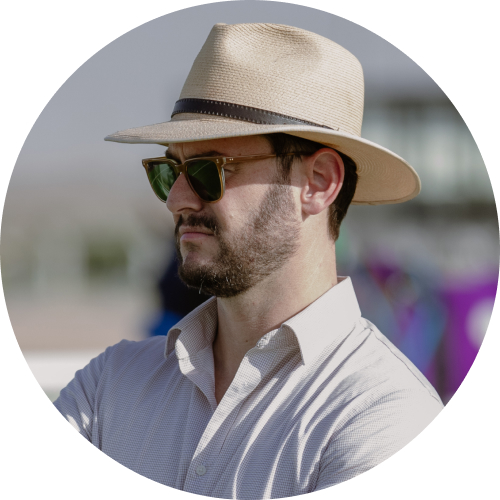
“The app would never tell us whether a horse should race. The decision ultimately falls to us as regulatory vets — and we look at everything together: gait data, veterinary and medication history, clinical presentation. Sleip is a tool that gives us more to work with, not a tool that makes the call.”
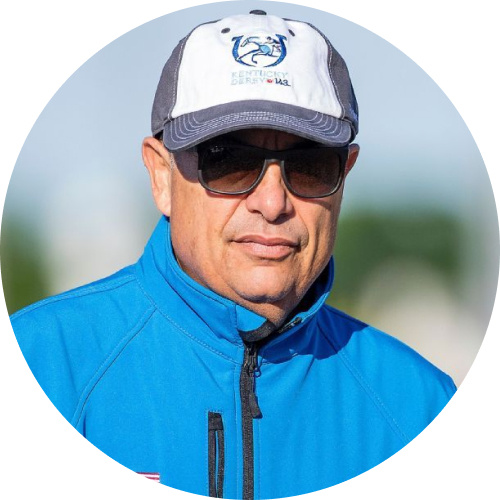
"If you stand still, you get run over. That's one of the things I've always said, so I'm always trying to be better. And I think Sleip has helped us do that."
What is Sleip
A precision tool for veterinary diagnostics at its core, Sleip combines AI with equine biomechanical science in a smartphone app that analyses motion data from video footage to detect even subtle asymmetries in a horse's movement.
While the veterinary version of Sleip contains features specific to diagnostic clinical work, the gait monitoring version uses the same core asymmetry measurements, allowing the entire care team to communicate using a common set of data.